Grilling in a garage is strongly discouraged due to the high risk of carbon monoxide poisoning, fire hazards, and potential violations of local fire safety codes.
Grilling in the garage may seem like a convenient solution, especially during inclement weather, but it’s crucial to understand the safety implications before firing up the barbecue. This article will delve into the risks and precautions associated with garage grilling, providing a comprehensive analysis of why it’s generally discouraged, the potential hazards it can pose, and the safety measures that should be employed if you absolutely must proceed.
Stick around to get all the essential details to ensure your grilling endeavors are safe and satisfying.
Key takeaways:
- Grilling in a garage is strongly discouraged due to safety risks.
- Risks include carbon monoxide poisoning and fire hazards.
- Proper ventilation and clearance from flammable materials are crucial.
- There may be legal implications and violations of fire safety codes.
- Consider alternative grilling methods and locations for safety.
Safety Concerns When Grilling in a Garage
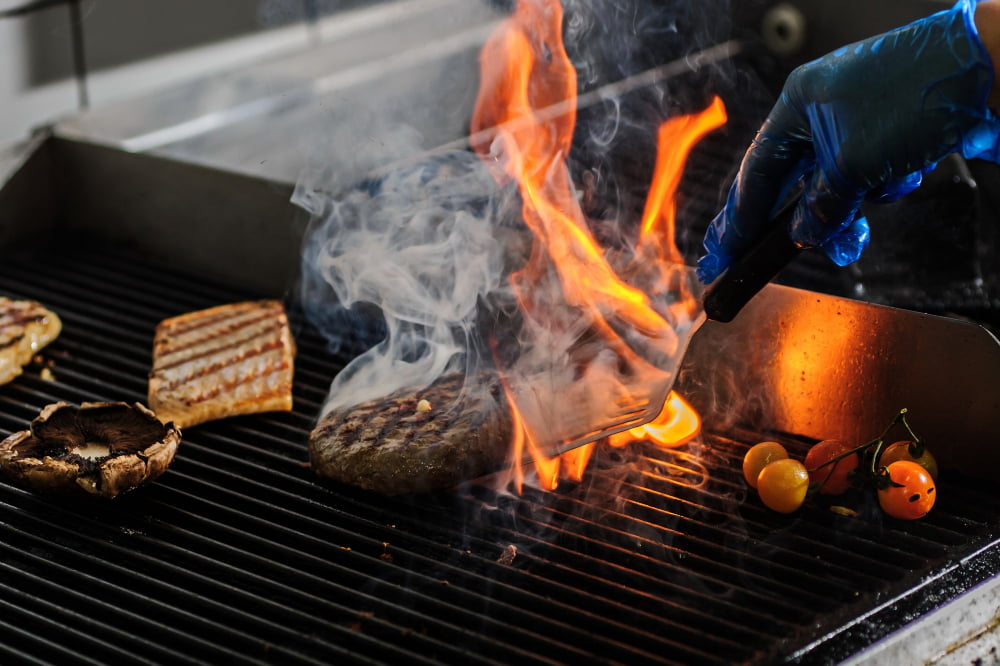
To maintain utmost safety, it’s vital to monitor the temperature and flames consistently to prevent overheating or flare-ups. Also, ensure that the grill is not in direct contact with any flammable materials such as paint cans, fuels, and even the car, as these can easily spark a dangerous fire.
Ventilation is another primary concern. A closed garage will trap all the smoke and fumes generated, compromising air quality, and can lead to dizziness or more severe carbon monoxide poisoning. Adequate air circulation is essential to dissipate these harmful gases.
Finally, keep a fire extinguisher within reach and ensure it is functional. Grill handlers should have essential knowledge of first-aid measures and contact information for emergency services if the situation becomes dangerous. It’s important to remember that safety should always supersede everything else when considering grilling in the garage.
Potential Risks of Grilling in a Garage
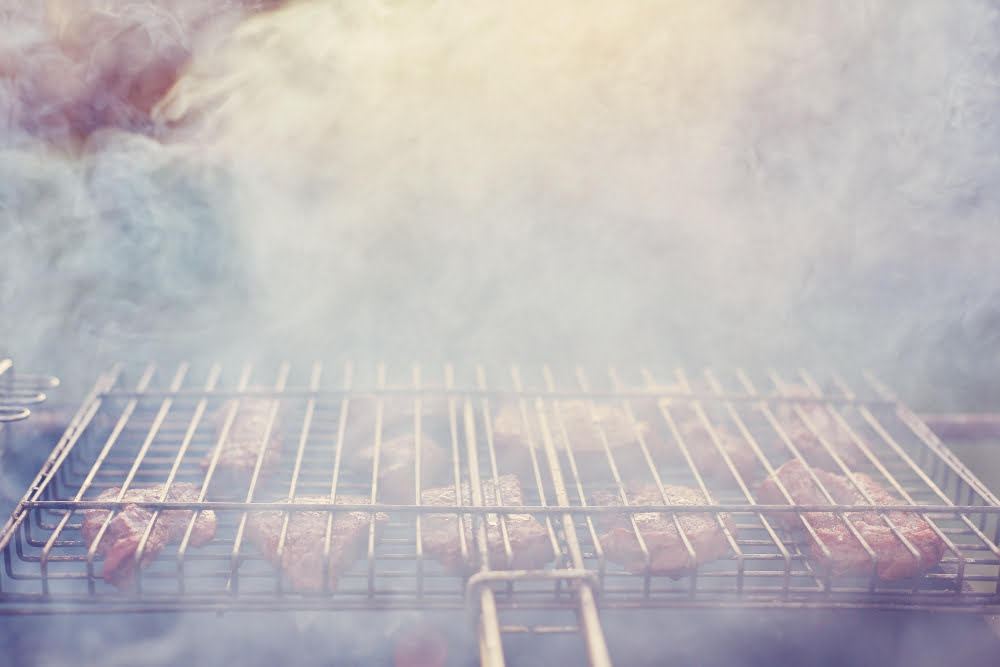
Garages, although somewhat sheltered, tend to lack proper ventilation, which means smoke and potentially harmful gases can accumulate rapidly during grilling. The considerable amount of smoke produced can result in impaired visibility, while the accumulation of carbon monoxide – a lethal, colorless, odorless gas – presents a serious health hazard.
Secondly, grilling typically involves open flames, which in a confined and often cluttered space like a garage, poses a significant fire risk. Accidents can occur by knocking over the grill or from sparks igniting nearby flammable materials.
Also, the proximity to inflammable substances such as gasoline, oil, and other automotive and lawn care chemicals customarily stored in garages, can dramatically escalate the danger. An often overlooked risk is the potential damage to the structural integrity of the garage due to the intense heat generated by the grill—especially if your garage has a lot of plastic or wooden components.
Remember that while the smell of grilled burgers or steak might be tempting, caution and safety should always be paramount. Understanding these risks can help prevent unnecessary accidents and ensure a safer grilling experience.
Carbon Monoxide Risks Associated With Garage Grilling
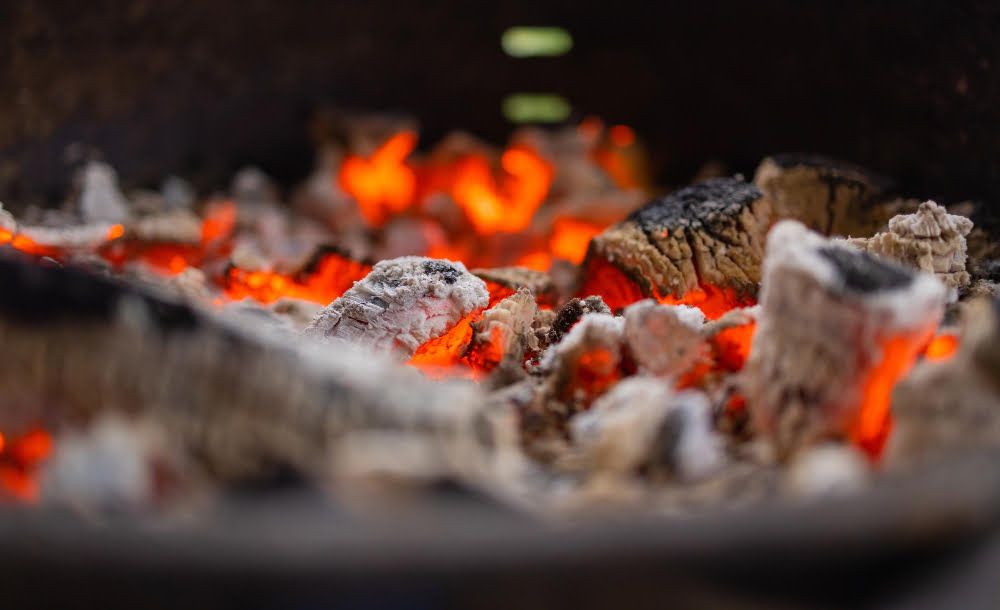
When grilling in a closed space like a garage, the production and accumulation of Carbon Monoxide (CO) – an odorless, colorless gas – is a critical concern. CO is produced when fuels such as gas, oil, coal, or wood are burned. The danger lies in the fact that high levels of this gas can prove lethal since it displaces oxygen in the bloodstream, leading to serious tissue damage or death.
Here are few important points to understand:
Undetected Levels: You cannot taste or smell CO, making it a stealthy culprit. This feature often leads to individuals being unaware of CO buildup until it’s dangerously high.
Ventilation Issues: While opening garage doors and windows may seem like a good solution, it’s not always sufficient. Wind direction, speed, and changing weather conditions can affect CO dispersal.
Health Risks: Exposure can lead to symptoms such as headaches, dizziness, weakness, upset stomach, vomiting, chest pain, and confusion. Extreme CO levels can result in unconsciousness or death.
Combustion Incomplete: The grill, when used inside a garage, may not completely burn the fuel, leading to a higher production of CO.
Chronic Exposure: Repeated exposure, even to lower levels of CO over longer periods, can also have a serious health impact.
Fire Hazards of Garage Grilling
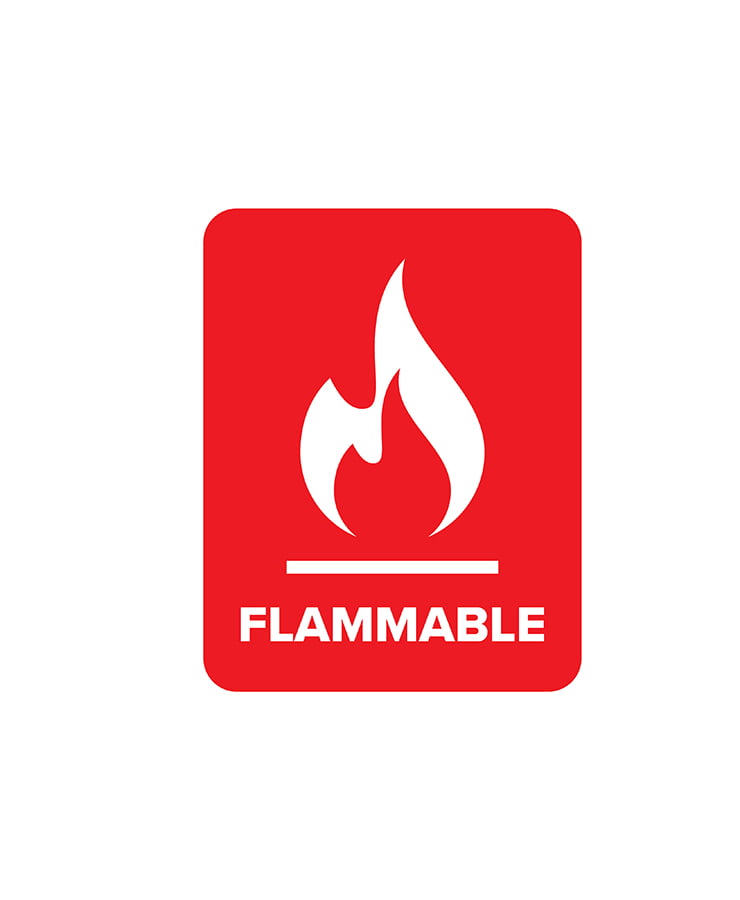
When it comes to fire hazards, garages can be significant risk zones. They are often filled with items like paints, cleaners, and automotive fluids, which are flammable. This creates an environment where a small flame from a grill can quickly escalate into a significant blaze.
Additionally, many garages are structured with wooden beams and drywall, again providing potential fuel for a fire. Space is another element to consider. Grills require a clearance of at least 10 feet on all sides to prevent accidental ignition of nearby objects, which might be difficult to achieve in a densely packed garage.
Remember, intense heat can cause propane tanks to explode, which could have devastating consequences. Thus, grilling within these enclosed spaces should be done cautiously, taking into account the above factors to minimize fire hazards.
Legal Implications of Grilling in a Garage
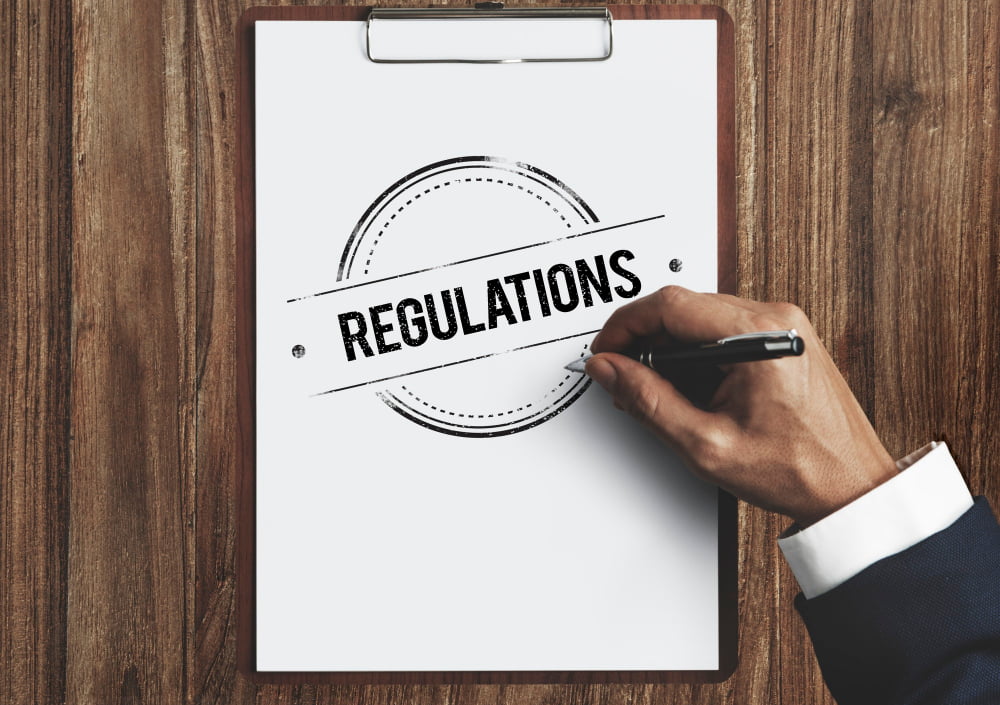
Various local and state laws govern the operation of grills indoors, which includes garages. These regulations are put in place to safeguard residents from the inherent hazards. For instance, in some municipalities, using any open flame device within 10 feet of combustible structures, or any structure with an overhead roof, is prohibited. Others require having a fire extinguisher close by when operating a barbecue grill.
Ignoring these regulations can result in hefty fines, removal of homeowners’ insurance coverage, or even potential jail time in specific instances where negligence leads to harm. So, it’s crucial to check with local fire departments or city offices to clarify the legality of grilling within a garage in your area before lighting up that grill. Always remember, safety regulations are there to protect, not to inhibit our summer fun.
Besides, violations of these laws can have severe implications should an accident occur. Liability could be questionable or outright denied in situations of injury, death, or damage if it’s discovered that the grill was illegally operated in the garage.
Precautions to Take When Choosing to Grill in a Garage
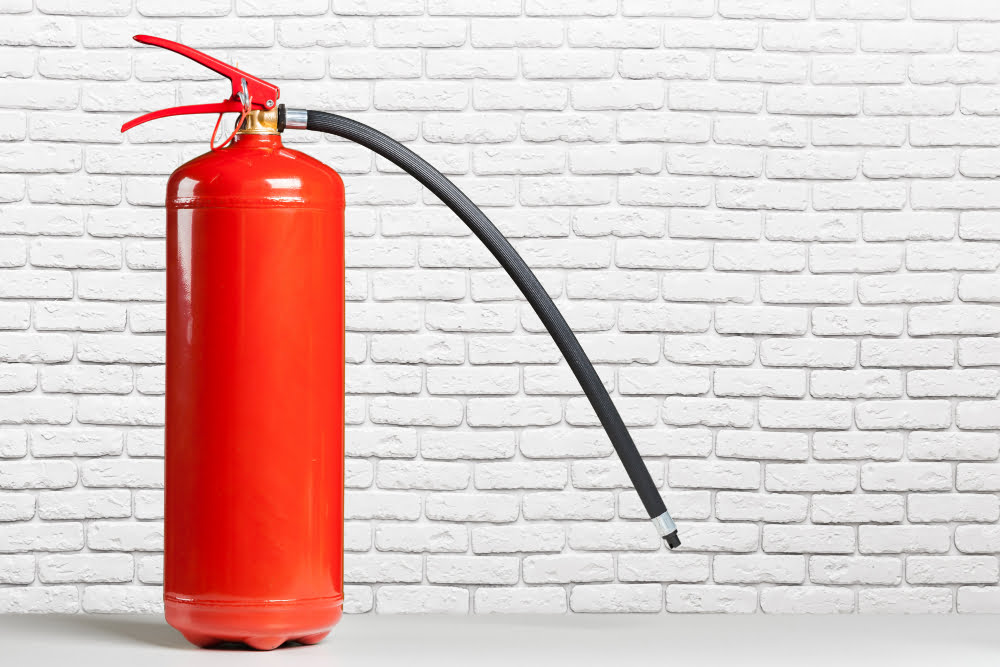
Given the inherent risks, if you still opt to grill in a garage, take these crucial precautions:
1. Ensure Adequate Ventilation: Keep your garage door fully open and ensure there’s a good airflow to disperse any potential harmful gases.
2. Location: Never use your grill within close proximity to any flammable materials; keep it as far away from your home structure as possible.
3. Fire Extinguisher: Always have a fire extinguisher handy when grilling as a fire could break out at any time.
4. Heat Resistant Material: If you must grill in your garage, consider grilling over heat-resistant material or mat to prevent any accidental fires from falling embers.
5. Ensure the Grill is Off: After grilling, double-check to ensure the grill is completely off. This includes the gas supply for gas grills.
These critical precautions can mitigate some risks but remember, grilling inside a garage is not generally recommended. Aim to use your grill outdoors in open spaces as much as possible.
Using a Charcoal Grill in a Garage: Yay or Nay
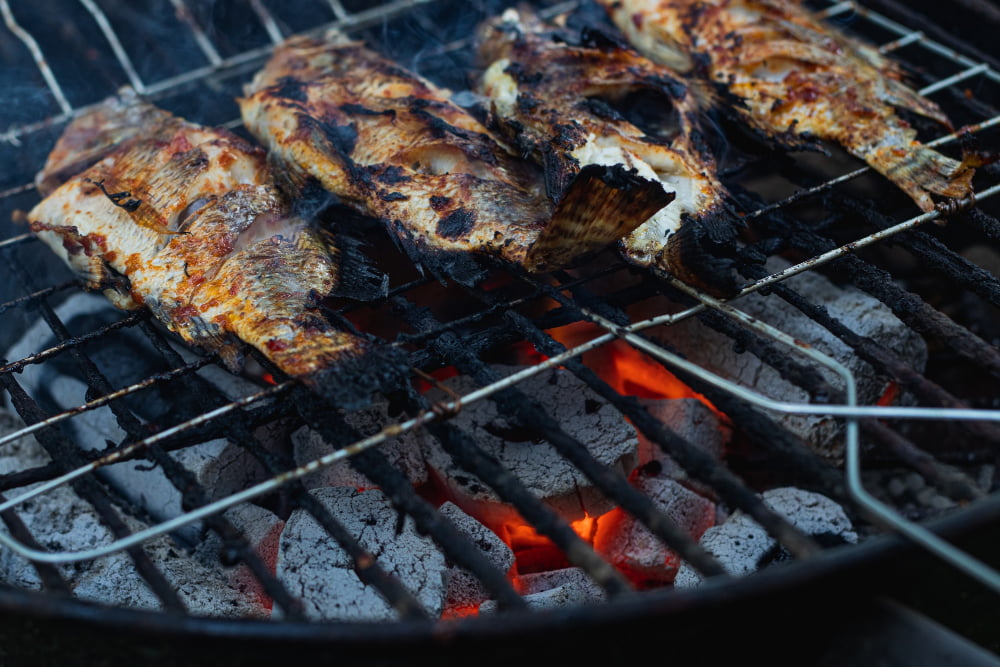
When it comes to charcoal grills, their use inside a garage, even with the door open, is a big nay. The main concern is the generation of carbon monoxide, an odorless, colorless, poisonous gas. Since charcoal grills are often designed with very open grates, they emit a larger quantity of this deadly gas.
Flooding the garage with toxins isn’t the only concern. The high heat and sparks flying off a charcoal grill can ignite common garage substances like gasoline, paint, or cleaning supplies, resulting in a fire hazard.
Additionally, controlling a charcoal grill’s temperature can be tricky, causing over-fired food and needless smoke. The smoke, combined with poor ventilation, can lead to discoloration of your garage walls or any stored items.
Lastly, remember that charcoal grills produce a lot of ash. Without regular cleaning, ash can build up and create a huge, messy problem in your garage.
In conclusion, the risks, inconvenience, and potential for damage make using a charcoal grill in a garage a significant danger that should be avoided.
Safety Measures for Storing a Gas Grill in a Garage
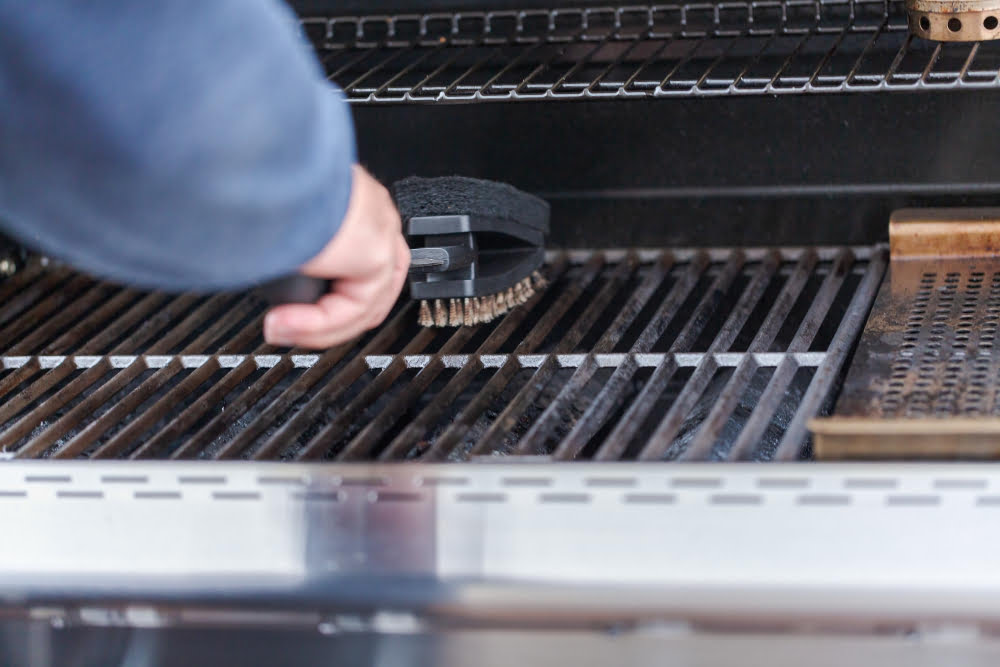
Ensure the gas supply is entirely shut off. Any residual gas could potentially lead to a fire hazard, particularly if a small leak goes unnoticed. Make an effort to store the grill with the gas canister detached, and keep it in an upright position to minimize the risk of leakage.
Clear out any debris from the grill before storage. Bits of food or grease left on the grill not only attract pests but also become a fire hazard over time. A thorough cleaning can help to eliminate these risks.
Strictly avoid storing the gas grill near any flammable materials. This includes gasoline, cleaning supplies, or even various types of equipment that often reside in garages. Garage shelves often carry many such objects, so it’s essential to create a ‘safe zone’ around your grill’s storage spot.
A grill cover can be a useful investment. While it doesn’t necessarily add directly to the safety, it helps to protect the grill from dust, moisture, and other elements that could contribute to rusting or general deterioration. Brands often offer custom-fit covers for their grills, ensuring a tight, secure fit.
By adhering to these simple measures, the risk associated with storing a gas grill in a garage can be significantly reduced. But remember, a garage is still not the ideal location for storing a gas grill, and whenever possible, it is recommended to find an outdoor location for its storage.
Pros and Cons of Keeping a Propane Grill in the Garage
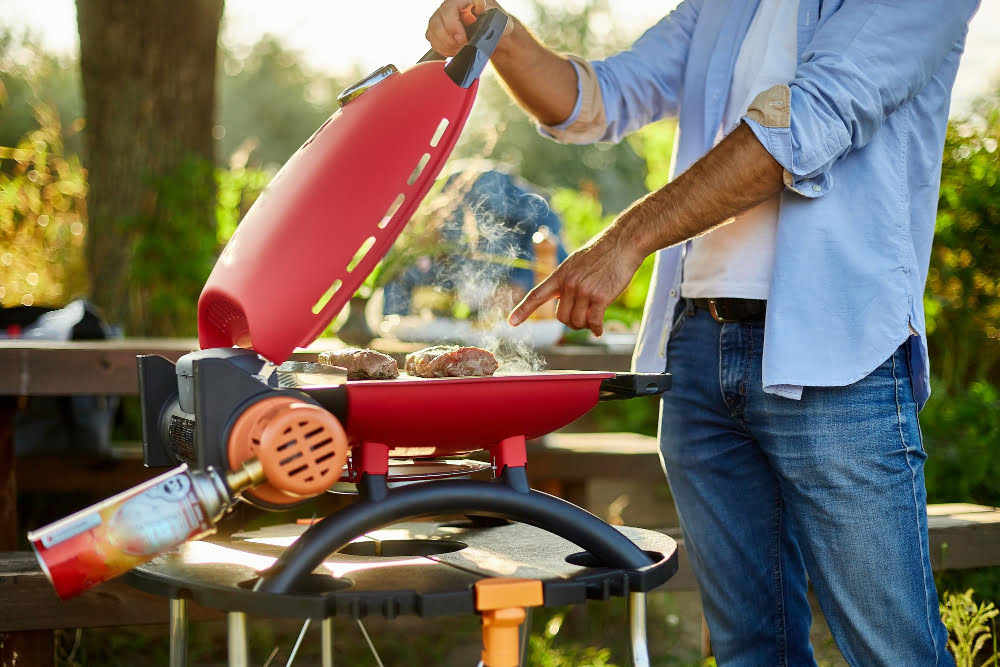
In terms of advantages, propane grills offer the benefit of a cleaner burn compared to charcoal counterparts, reducing soot and smoke, which can minimize potential garage damage. Unlike charcoal grills, which demand cooling downtime before storage, propane grills cool down faster, saving time. Propane offers a high heat intensity, allowing for more efficient grilling even in a closed area like a garage.
On the flip side, storing propane grills in the garage isn’t devoid of cons. Irrespective of the cleaner burn, propane is a highly flammable fuel. Any leaks or cracks in the tank could lead to a dangerous build-up of gas in the garage, presenting an explosion risk. Depending on the garage’s size and ventilation, even a small propane leak could quickly fill the space with fumes, potentially causing nausea or dizziness. Lastly, housing a grill in the garage takes up valuable space that could be used for storing other garage essentials or a vehicle.
Grill Varieties Suitable for Garage Usage
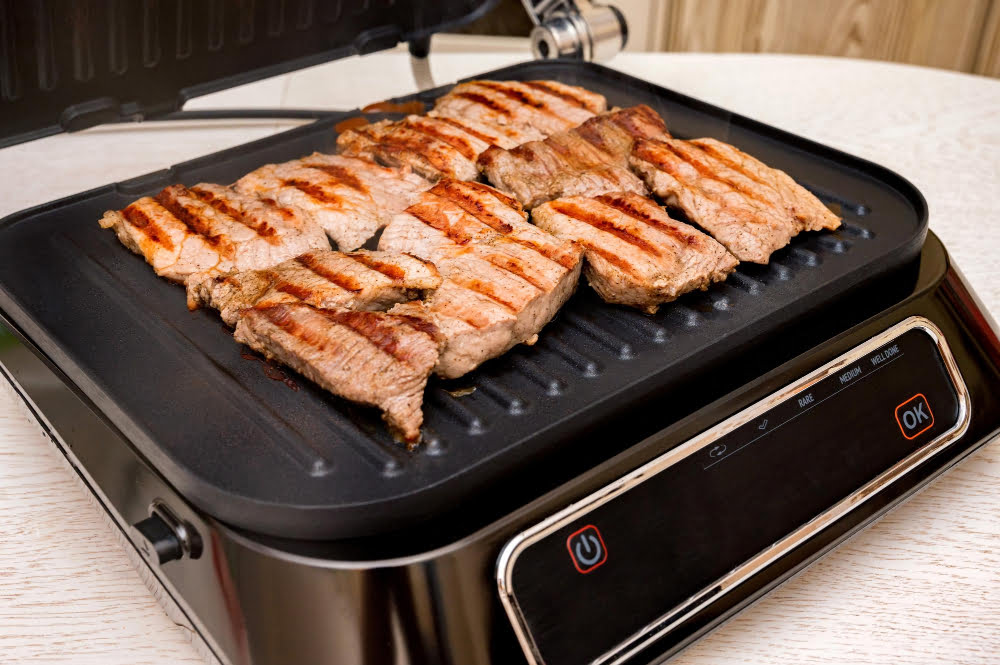
Electric grills are typically the safest option for indoor use, including garages, thanks to their smokeless design and no fire risk. They are compact, easy to use, and don’t require gas or charcoal fuels, which significantly reduces potential hazards.
Portable grills are often compact, making them perfect for a tight garage space. Many are either electric or use small propane tanks, which can be safely stored. However, necessary ventilation should be provided to avoid smoke build-up.
Infrared grills can also be suitable for the garage environment. These advanced grills use infrared radiation to cook food, which reduces fuel combustion, thus minimizing smoke and fire risk.
While pellet grills are normally designed for outdoor use, some models can be adapted for your garage with careful installation of ventilation systems. They produce less smoke than charcoal or gas grills but still require careful management.
Always focus on ensuring any chosen grill has a thermostat for temperature control, reducing the risk of overheating and potential fire hazards. Necessary precautions must be in place regardless of the type of grill used to maintain a safe environment.
Alternative Methods and Locations for Grilling
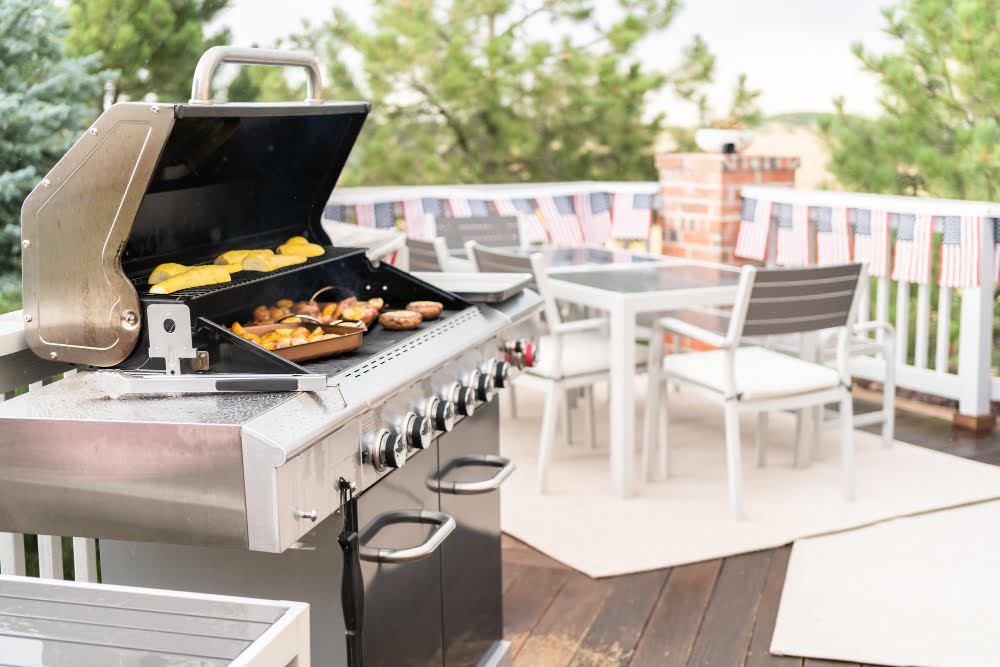
Outdoor grilling in a yard or garden is the most common and safest method, notably reducing potential garage-related risks. Areas which are open-air, far from combustibles, and can be safely ventilated offer secure environments for grilling.
Deck grilling is another alternative, provided it’s made of non-combustible materials and deck grilling regulations are adhered to.
Portable grills provide an additional level of convenience and can be placed anywhere, even on picnics or outings. Remember, their small size does not minimize the need for safe usage.
For those unable to grill outdoors due to space constraints or regulations, using an indoor grill or electric griddle is also an option. Indoor grills are designed specifically with safety and smoke-reduction in mind.
Indoor smoking using a stove top smoker is another viable choice. It offers a slow cooking method, ensuring moist and flavorful foods.
Lastly, oven broiling is a convenient alternative that can simulate the high-heat searing effect of grills. However, it might lack the authentic smoky flavor of traditional grilling methods.
Remember, each of these alternatives comes with its own unique pros and cons, and safety precautions are mandatory in all grilling activities.
FAQ
Can I grill in garage with door closed?
No, grilling in a garage with the door closed is not safe due to the risk of smoke accumulation and potential carbon monoxide poisoning.
What safety measures should be taken when grilling in a garage?
When grilling in a garage, ensure adequate ventilation, keep the area clear of flammable materials, use a fireproof grill mat, and have a fire extinguisher on hand.
Can carbon monoxide from grilling in a garage be harmful?
Yes, carbon monoxide from grilling in a garage can be harmful, as it’s a colorless, odorless gas that can lead to serious health issues or even death if inhaled in large amounts.
Is it legal to grill in a garage?
Grilling inside a garage is generally not legally prohibited, but it’s considered unsafe due to risk of carbon monoxide poisoning and potential fire hazards.